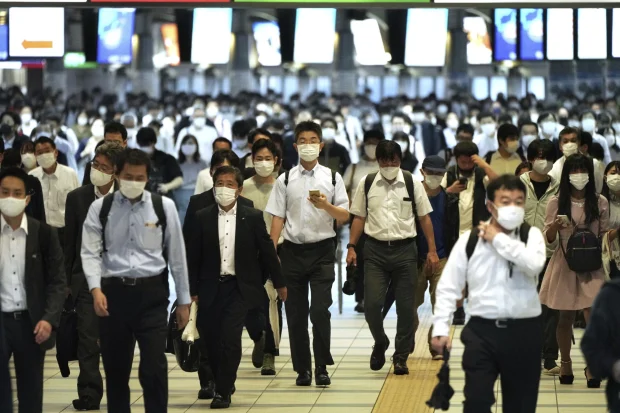One in four people in Japan have said in a survey they will continue to wear face masks in all social settings, even after COVID-19 guidelines on face coverings are eased on Monday, citing reasons such as infection prevention and habituation.
The move to leave decisions around mask-wearing to individuals is the latest effort by the Japanese government to “normalize” social and economic activities that have been under public health restrictions for the past three years, but the survey indicates that a drastic change in face-covering customs may not occur any time soon. Since the novel coronavirus pandemic accelerated in early 2020, mask-wearing has not been a legal requirement in Japan, but doing so has become a common practice among the Japanese public.
At present, the government recommends wearing masks indoors, while not suggesting doing so outdoors. According to the online survey, conducted in February by Laibo Inc., an operator of a research institution focused on careers, 27.8 percent of 561 company employees in their 20s to 50s said they would continue to wear masks “unconditionally.”
More than 66 percent said they would decide whether to remove their masks depending on the situation, such as during meals or whether there are other people nearby. Only 5.5 percent said they would not wear one regardless of the social setting they were in. When asked about their reasons for wearing a face mask in a multiple-response question, the largest group, 53.4 percent, responded that they would wear one “to prevent coronavirus infection,” followed by 50.2 percent who saw it as “a habit,” and 39.2 percent who wanted to prevent themselves “becoming infected from diseases other than the coronavirus.”
One respondent wrote, “I think many people will choose not to remove their face masks because it has become customary after wearing them for three years,” while another said, “In the end, as people decide by looking at those around them, the widespread removal of masks will not make much progress.”
Under the new government guidelines, the government will still recommend the use of masks for medical institutions and nursing homes, as well as on crowded trains and buses. It will also note that masks protect people at higher risk of serious illness, including elderly and pregnant wom





